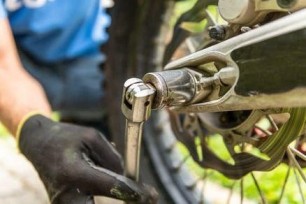General Insurance Blogs, Articles & Updates by - Magma Insurance
Have us call you
- RENEW YOUR POLICY
- BUY NEW POLICY

Know about zero depreciation car insurance policy
Does the depreciation value of your car scare you? Do you feel that you will have to empty your pockets for your car's damages once it gets old? Now, there is a one-stop solution for these queries – a zero depreciation policy. In a zero depreciation policy, the insurance company covers the expenses of physical damage caused to the vehicle in the unfortunate event of an accident without considering any kind of depreciation.
Vehicles are naturally depreciating assets, meaning, with every new car, there will only be a devaluation in the price over time. The parts like mirrors, metal, rubber, plastic and other car accessories are subjected to depreciation.
Zero depreciation car insurance vs regular car insurance:
Let us quickly compare the benefits of zero depreciation insurance to regular insurance.
Premium: The premium cost payable for zero depreciation insurance is slightly higher than that of regular car insurance. The depreciation policy premium varies with attributes like your address, the model, and your car's age.
Claim settlement value: In zero depreciation cover, the claim settlement amount is higher since the calculation of depreciation is not done, whereas, in regular car insurance, the claim settlement amount is received with a deduction of depreciation.
Repairing amount: In zero depreciation insurance, the repairing cost of parts like rubber, glass, plastic is paid by the insurance company, whereas these costs are borne by the insurance holder in regular car insurance.
Usage duration of the car: This factor does not make a difference in zero depreciation insurance because any depreciation is considered nil. However, in regular insurance, the depreciation rate of your vehicle keeps increasing day-to-day.
Benefits of a zero depreciation insurance: Let us now understand the benefits of zero depreciation insurance.
Easy claim: It ensures the timely and straightforward settlement of all expenses providing the insured with easy claim settlement.
Covers all expenses: The insurance company gives you total coverage of the costs that are heavy on your pocket, as well as any other miscellaneous charges during the time of settlement.
Profit while claiming: Zero depreciation policy adds more value to the basic coverage at the time of claim, making your expenses amount almost nil, hence leaving you with a profit.
Assurance: Since the vehicle has a zero depreciation insurance cover, so you have the satisfaction of being safe under a protective layer of the insurance policy.
What is not a part of a zero depreciation policy? Following are the factors that will restrict your complete claim on the advantages of a zero depreciation car insurance policy.
No driver's license: If the driver or owner of the vehicle does not have a valid driver's license, they are not eligible to claim the benefits of this policy.
Drunk driving: Immediate rejection of claim benefits happens if the driver happens to be under the influence of alcohol or any other intoxication.
Maintenance of engine oil: Unfortunately, this policy does not cover your regular maintenance such as engine oil, coolants, etc.
Compulsory deductibles: Compulsory deductible is a mandatory amount set by the IRDAI depending on the engine capacity of a vehicle. This amount is not a part of the zero depreciation policy.
For cars more than five years old: If the insured vehicle is aged more than five years, it cannot opt for a zero depreciation policy.
Mechanical expenses: Occasional breakdowns and arbitrary wear and tear of the vehicle will not be covered in the policy.
To sum it up, zero depreciation benefits a wide array of car owners considering the cost-effective claim settlement and boosting their regular insurance plans in the form of a worthy add-on.
GET TO KNOW MORE ABOUT THE BEST CAR INSURANCE PLANS ONLINE BY CLICKING HERE…

How to find bike insurance details with the help of the registration number
Did you know that you only need the unique registration number of your vehicle to get the details of your bike insurance online? In this article, we'll provide you with all the information on the registration number.
When you buy a bike insurance policy, details of it get linked with your bike's registration number. Therefore, you can quickly check the information of your bike insurance through your bike's registration number.
As per the Insurance Regulatory and Development Authority of India (IRDAI), it is mandatory to carry insurance documents of the bike whenever you are on the road. If one fails to do so, there is a possibility that the claim settlement may be invalid in case of any mishap. Even though policy documents are essential papers, misplacing them is a pretty common occurrence among policyholders.
However, fret not! It is pretty simple to find the details of your insurance with the help of the registration number. Let's understand this here:
What is a Registration Number?
A bike registration number is a unique number issued by the Regional Transport Office (RTO) of your district. Every vehicle owner must obtain a registration number within 30 days of purchase of the vehicle.
The registration number is helpful to identify the owner of the vehicle in multiple scenarios. Apart from identification, the registration number is a must for a bike insurance policy, renewal of it, or insurance claim.
Your vehicle's registration number is displayed on a metal number plate and affixed at the front and back of the two-wheeler. The registration number has an accredited structure for different types of vehicles. Let's understand this further here.
Consider this, your vehicle is registered in Delhi and is granted the number DL 0X BX XXXX. The first two alphabets indicate the state code, and the next two digits are the unique district code. The following two alphabets are the current series of the RTO and the classification of vehicles. And, the last four digits are your vehicle's unique number.
How to derive two-wheeler insurance details by your vehicle's registration number?
When buying bike insurance online, the details of your policy are automatically synced with the registration number. RTO, Central, or State Government can use details for official purposes. You can enter your registration number on any of the following websites to get details on your bike insurance online:
● Official website of the Regional Transport Office RTO where the bike is registered
● Website of the state transport department
● Website of the Ministry of Road Transport and Highways (parivahan.gov.in)
● Website of the Insurance Information Bureau (ibb.gov.in) of the Insurance Regulatory and Development Authority of India (IRDAI)
Further, you can even renew your existing insurance policy using your two-wheeler's registration number. There is a facility for tracking the details of your policy online and renewing it before it expires.
The registration number links your vehicle directly to RTO's and Government's databases, so this stands out to be an advantage to maintain a record of your two-wheeler's insurance.
WANT TO KNOW ABOUT THE BEST BIKE INSURANCE ONLINE POLICY FOR YOUR VEHICLE? CLICK HERE…

Six Tips to purchase a good bike within your budget
Two-wheelers are always the easy moving, compact and sleek asset to glide through congested traffic and to move faster on the roads. Because of the ease of commuting and the low price compared to cars, they remain the first choice for the middle-income and young people.
If you are planning to buy a two-wheeler, you would say that a test drive of a few models is important. But practically, you should also read these six golden tips that help you make the right decision and save some money.
1. Purpose of purchase and requirements:
You should be clear with your objectives of buying a two-wheeler. Then, do proper research of the types, models, and other requirements, including the reviews of your shortlisted brands. Bikes are a versatile commodity, and they come in numerous shapes, sizes, types, and brands. You can use them for long rides, sports or racing, or as a day-to-day commute vehicle. Therefore, considering how and where you will use your two-wheeler is essential to finalise the model.
2. Set your budget:
Make sure that your dream two-wheeler suits your pockets too. Decide on a clear budget for your purchase and look for the bikes in that range. This helps you to narrow down the choices and the best fit. Remember that you will have to take care of maintenance, service and insurance of your bike as well.
3. Effortless handling:
Don't compromise your physical abilities and feasibility for some cool model of bike that you see. Choose the perfect height and the weight of the bike that you can handle conveniently. If you enjoy speedy rides, then you should opt for a sports bike. But if you are a family person, then sports bikes are not your category. Always give preference to high-performance and bikes with good mileage.
4. Maintenance and aftercare:
Make sure that the model or type of bike you choose has extensive and quality service centres. Wide network of service centres helps you to get your vehicle repaired easily. In addition, multiple brands offer free extended service options for a certain period that can save on maintenance cost. Also, keep in mind that regular servicing and good maintenance are necessary for the long life of your bike.
5. Customer reviews:
Customer reviews are crucial and can give you some genuine feedback about the two-wheeler you are considering. Thorough research of on-road reviews of users can further provide you with information about the two-wheeler, its attributes, real-time mileage, and many other aspects that a salesperson at the showroom might not tell you.
6. Purchasing insurance:
Your task doesn't end with just buying a bike. Bike insurance is essential and a must thing to be done. Insurance coverage for two-wheelers got mandatory after the Motor Vehicle Act in 1988. Adjust your budget according to your annual insurance premium. For safe and easy rides, secure your vehicle with bike insurance. You can also check bike insurance online for the best premium. Compare it all and choose the best fit for your bike and act smartly.
Lastly, make sure you compare across various brands and look through multiple dealers and the offers.
PURCHASING A NEW BIKE? CLICK HERE TO KNOW THE BEST ONLINE BIKE INSURANCE…

Five healthy habits that can enhance the life of your bike
Motorcycles are a motorhead's most prized belongings. While some people use them for transportation, others use them for enjoyment and sports. Owning a motorbike requires taking care of it and ensuring that it is not damaged. Even when navigating challenging terrain, a well-maintained bike will not let you down. However, ignoring your bike may result in unnecessary damages.
Keeping your motorbike in perfect condition is as significant as owning it. To help you with that, we've discussed five essential points to keep your motorbike in good working order.
1. Changing your bike’s engine oil at regular intervals:
Multiple mechanical pieces constantly move and rub against each other in your motorcycle's engine every day. To ensure their best functioning and to reduce friction, you must lubricate them with motor oil. Unfortunately, dust and particles thicken the oil with time, reducing its lubricating power. Changing your motorcycle's oil every 2500-3000 kilometres helps improve performance and safeguard the engine from harm caused by outside elements mixed in with the old oil.
2. Checking the drive chain:
The drive chain is an essential component of your motorbike, and neglecting it is a call to a shorter service span. Inspect your drive chain regularly and ensure that the chain tension is correct. Lubricate it, particularly while it's heated. This allows the oil to flow and get into all portions of the chain, making it smooth for functions.
3. Taking care of your tyres:
You simply can't get anywhere without the tyres of your bike. The big rips or cracks on the tyres can cause them to lose friction. Check if the tread depth is within the approved limit. Don't hesitate to change them if you believe they are no longer safe.
Also, check the air pressure of the tyres regularly. The proper air pressure reduces or eliminates the possibility of a puncture, enhances bike control, and extends the life of the tyres.
4. Looking after the filters:
When your bike's air filter is congested, the engine has to work harder. Experts recommend cleaning the air filter using compressed air. If you realize that cleaning the air filter is becoming tricky, it is time to replace it. You must also ensure that the gasoline filter is clean and that the fuel lines are free of corrosion and cracks. You must repair them right away if you see any damage.
5. Checking up on your brakes:
Check brake fluid levels at regular intervals to ensure your motorcycle's brakes are properly functioning. Replace the brake fluid according to the manufacturer's instructions. In addition, you should check the thickness of the brake pads and replace them when needed.
Give your time to work on the above tips to keep your bike operating smoothly. This will help your 2 wheeler survive longer while giving you a comfortable and trouble-free riding experience.
Also, don't delay taking your motorcycle for regular servicing. Although this will cost you a few bucks, if you think of a longer run, you'll only benefit from it. Insurance is another way to take care of your bike. You may purchase 2 wheeler insurance online and choose the one with an attractive premium and additional features to safeguard your vehicle against any mishaps.
Click HERE to explore all the 2 wheeler insurance online plans.
Disclaimer: The information provided above is for illustrative purposes only. To get more details, please refer to policy wordings and prospectus before purchasing a policy.

